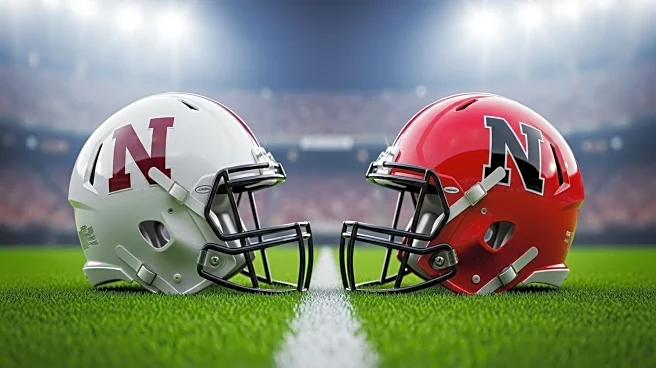What's Happening?
In the current college football season, Texas A&M and Texas Tech have both maintained undefeated records, standing at 5-0 overall and 2-0 in conference play. This success is occurring during a period characterized by the Wild Wild West NIL (Name, Image, Likeness) era, where financial incentives are playing a significant role in college sports. The enthusiasm for football in Texas, coupled with the financial backing from supporters, has contributed to the teams' ability to attract and retain talented players. Meanwhile, other teams like the Cincinnati Bearcats, under coach Scott Satterfield, are also performing well, with a 4-1 record following victories over Kansas and Iowa State.
Why It's Important?
The undefeated status of Texas A&M and Texas Tech highlights the impact of the NIL era on college sports, where financial incentives can significantly influence team compositions and performance. This development underscores a shift in college athletics, where traditional recruiting methods are increasingly supplemented by financial considerations. The success of these teams could set a precedent for other programs to follow, potentially altering the landscape of college football. The ability to attract top talent through NIL deals may lead to increased competitiveness and a reevaluation of strategies by other universities aiming to remain competitive.
What's Next?
As the season progresses, the performance of Texas A&M and Texas Tech will be closely monitored to see if they can maintain their undefeated streaks. The influence of NIL deals on team dynamics and performance will likely continue to be a topic of discussion among college sports analysts and stakeholders. Other universities may consider adjusting their approaches to NIL opportunities to enhance their competitiveness. Additionally, the ongoing success of these teams could influence future policy discussions regarding the regulation and impact of NIL in college sports.
Beyond the Headlines
The NIL era represents a significant cultural shift in college athletics, where the commercialization of student-athletes' personal brands is becoming more prevalent. This change raises ethical questions about the balance between education and athletics, as well as the potential for disparities between programs with varying levels of financial support. The long-term implications of this shift could include changes in how college sports are perceived and the role of higher education institutions in supporting student-athletes.









